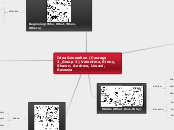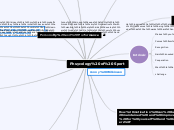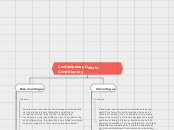Little Red Riding Hood
Type in the title of your story.
To name your story, you have to think of the overall message and what you want your audience to understand from the story. Also, make it relevant and easy to remember. Examples:
- theme: Audition, by Barbara Walters;
- main character's name: Robinson Crusoe, by Daniel Defoe;
- use of gerund to describe the plot: Waiting for Godot, by Samuel Beckett;
- time or numbers: 1984, by George Orwell;
- line that best describes the theme: Pride and Prejudice, by Jane Austen;
- key object or possessive in the story: Charlotte's Web, by E.B. White;
- story setting: Twenty Thousand Leagues Under the Sea, by Jules Verne
CLOSING
OUTCOME
The outcome
This is the closure section of the story.
Woodsman kills the wolf and saves Red Riding Hood and the grandmother
Brief ending for your story
Try answering these questions in order for you to come up with a closure:
- Have all problems been solved?
- Is it clear what happens with all your characters in the story?
- Has the challenged transformed your main character?
- How do the characters feel in the end?
CLIMAX
The climax
This is the moment when the main character passes by the last obstacle and finally faces its great challenge.
Big Bad Wolf eats Little Red Riding Hood
How does your main character finally solve the problem?
The climax usually follows one of these patterns:
- Realization (the character puts together all the pieces of the puzzle and solves the mystery);
- Resolution (the character needs to transforms itself during the confrontation);
- Choice (the character has to make a difficult choice).
MIDDLE
OBSTACLES
The obstacles
There wouldn't be any tension and excitement in your story if there weren't any obstacles that get in your character's way.
Big Bad Wolf in Grandmother's Bed
What stands in the way of your character to accomplish his goal?
Type in the obstacles.Usually, the obstacles come in sets of three. This way, your story can evolve and be exciting for your audience.
can't swim very well, shark invasion, sea stormstrong allergy to dogs, pack of wolves, hunters invasionloses coin, finds coin but it is soon stolen, hard time deciding whether to return or not to his real lifereceives medication, fight with dangerous patient, someone reveals his escape planmemory loss, no support from family, the game takes place earlier than expected
MOTIVATION
The motivation
Your character(s) need(s) motivation in order to solve the challenge(s).
Motivation
Why does your character need to confront this challenge?
Why does your character need to confront this challenge? What does he/she expect to accomplish by solving it?
will marry in 3 dayshe/she loves the childcan fix the mistakes in the pastwants to help other misplace patients escapechance to win the World Chess Championship
CHALLENGE
The challenge
Each story has a main character and that character usually needs to solve a problem or challenge.The character's challenge is the one that creates tension throughout the story.
Runs into the Big Bad Wolf
Challenges
Type in any other challenges which the main character or other characters in the story need to face.
Get to Grandmother's House
What is the main challenge in your story?
Type it in.Try to come up with an interesting challenge with which the character needs to struggle.
wakes up one morning in the middle of the oceandiscovers that his/her child turns into a werewolf at nightis sent back in time after rubbing an old coinis misplaced in a mental institutionbecomes blind before the most important game in his career
BEGINNING
SETTING
Sensory detail
Sensory details
Sensory details are important because they create depth in your setting. Type in the aromas, sounds, sights, things related to touch, smell and taste.
smell of fresh breadscent of freshly cut grassrain falling onto the windshieldbirds singingfluffy cloudsrural hillssticky honey on the tableclothstinging moustache
Weather
Weather
The weather is an important element in your story because it can highly influence the ambience in the story and the mood of the characters.
Effect
What are the environmental reactions?
And what about the character(s)'s emotional responses to these weather conditions? Type them in.
lonelinessblissexcitementangerfrustrationfearloss of propertyloss of life
Element
Think of weather elements
Type in the ones that will be enclosed in your story line.
rainbowthunderlightningsnowrainwindhailmistfrosthoarfrosthumidity
Catastrophic event
Catastrophic event
Does your story take place during catastrophic weather?
hurricanetornadotsunamiearthquakeflooddrought
Autumn
What's the season in which the story takes place?
Each season has unique weather and events, whose description can also enrich your text.
SpringSummerAutumnWinter
morning
Time of day
What time of the day does the story takes place?
dawnmorningafternooneveningduskmidnighttwilightbreakfastlunchdinnersunrisesunsetfull moon
Woods
Where does the story takes place?
Your story can take place wherever your imagination will take you to.
in a hospitalinside a carat the cinemain a restaurantat the zooin spacein an elevatorin an enchanted forestin the palm of your handin a haunted palaceinside an aquariumAncient GreeceBermuda Triangle
CHARACTERS
Character's name
Type in the name of your character.
Main Goal
Main goal
What is your character's main goal?
fight Evilfind lovedefeat his/her enemyrule the worldmake friendstime travelmake an awesome discovery
Personality
Trait
Character traits
Which traits best describe the character's personality?
introvertedloyalkindindependentquick-thinkingadventuresomeidealisticsweet-naturedcalmrisk-takercreativewittystrictfussyweirdclumsyharshaggressivecarelessclingingcowardlycrueldeceitfulimpulsive
Type
Type of character
Decide what type of character he/ she is.
Protagonist (main character): Harry PotterAntagonist (main character's opponent): Lord VoldemortFlat (stereotypical character): Mr. Filch from Harry Potter sagaRound (his/ her personality develops throughout the story): Hermione GrangerStatic (his/ her personality doesn't evolve throughout the story): Professor McGonagollDynamic (dramatical change in personality): Neville LongbottomConfidant (the main character trusts him/ her): Ronald WeasleyFoil (contrasting character who enhances the personality of another character): Draco Malfoy
Main topic









